The Third Democratic Debate: The Gloves Come Off
Two issues dominated the opening of the third and last Democratic presidential debate of 2015: the Bernie Sanders-Hillary Clinton data breach controversy, and foreign policy—namely how to deal with Islamic State. (Updated)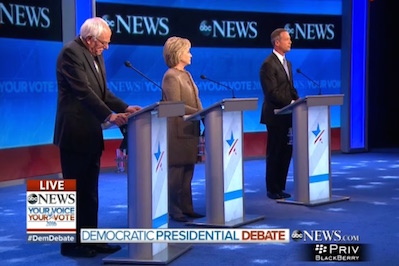 ABC News
ABC News
ABC News
UPDATE (11:11 P.M. EST)
As the second half of the debate began, Sanders was asked how, given the measly rise in workers’ income and a meteoric rise in CEO pay in recent decades, he would be able to bring about pay increases for workers. He said he would tax the “billionaire class,” raise the minimum wage to $15 an hour over several years, raise women’s wages to match those of men’s, and create 13 million jobs with public investment. He also said he would tax Wall Street speculation in order to make college tuition-free.
O’Malley said that in his tenure as governor of Maryland, during the recession, he increased the minimum wage and education funding, invested in infrastructure and created thousands of new jobs in the renewable energy sector.
Clinton lauded her Democratic rivals for taking on the issue of inadequate income. Asked whether “corporate America should love Hillary Clinton,” she replied with a smile, “Everybody should.” She listed changes she said would level the playing field between the haves and have-nots and added that she was committed to creating jobs in small businesses.
Sanders responded that corporate America would not like him and that Wall Street “would like me even less.” He added that “the greed, recklessness and illegal behavior of Wall Street” needs to be dealt with. He said some corporations are creating jobs and trying to do the right thing, but the greed of the “billionaire class and Wall Street” is destroying the prospects of the middle class.
Among other policy proposals, O’Malley said he would support an effort to use antitrust laws to break up monopoly and encourage competition between business, something he said Clinton would not do. She responded that “two hedge fund billionaires” are running ads against her because they dislike her policies. She claimed she has more donations from students and teachers than she has from Wall Street, apparently referring to the number of contributions, rather than their total or average amounts. She reiterated her familiar claim that her plan to deal with Wall Street is tougher than those of her competitors.
Sanders disagreed, citing his record of opposing big banks and saying that Wall Street and the banks are a threat to the economy.
The debate then turned to health care. The moderator cited swiftly rising health care costs in the wake of the Affordable Care Act and asked Clinton what she would do to address them. She called the rising costs “glitches” and listed a few benefits of Obamacare. She proposed a $5,000 tax credit to help people afford high out-of-pocket costs and said the government needs to exercise greater oversight to control rising insurance costs.
A member of the audience asked Sanders how he would lower the cost of education. He responded that in addition to covering expenses with tax increases on the wealthiest earners, costs throughout university administrative branches could be cut without damaging the quality of education.
O’Malley proposed an income-based plan for the repayment of student loans, among other ideas.
Clinton said she would not provide free tuition to all students, only for those who need financial help. She lauded Sanders’ commitment to changing the health care and college system but accused Sanders of being vague on how he would pay to fund better health care and education. He clarified his position by saying that his plan would reduce costs. Clinton said she did not want a tax on the middle class. The senator responded that any tax increases in his plan were meager and that the benefits would offset the costs.
Clinton promised not to raise taxes on earners making less than $250,000 per year.
The debate then turned to the topic of racial tension and violence. Clinton was asked how she would bridge the divide between police officers and the people they serve, especially black Americans. She responded that the criminal justice system has to be reformed.
O’Malley said that as governor he was able to reduce violent crime and incarceration rates in Maryland. He said it is possible to “find the things that work” and “improve how we police the police,” adding that police departments should be required to report their misbehavior.
Sanders cited incarceration figures and said Americans need to reform the criminal justice system. “Police officers should not be shooting unarmed people, predominantly African-Americans,” he said, adding that the war on drugs should end. To this end, he said he would seek to decriminalize marijuana and ensure that police departments look like the people they serve.
Next, the candidates discussed the heroin epidemic in New Hampshire. Sanders described it as a tragedy and said that medical professionals need to be more careful in prescribing opiates. He said that “addiction is a disease, not a criminal activity,” and that the U.S. should change the way it addresses the problem.
Clinton said she has a five-point plan to address heroin addiction that includes providing federal funds for programs to help people. She added that every law enforcement officer should carry antidotes to treat overdoses.
O’Malley described his personal experiences with people who had lost loved ones to drugs. He said over-prescribing needs to be reined in and that federal money can be used for his plan to cut heroin deaths by half over the next five years.
Clinton was asked how much responsibility she bears for the chaos that followed the 2011 U.S. invasion of Libya. She brushed off the question and spoke about giving Libyans the “tools they need” to govern themselves. When the moderator pushed her again on the question, she refused to answer directly. Asked if mistakes were made, she said that mistakes always become apparent in retrospect.
Sanders touched on the topic of regime change, saying it is easy for the U.S. to overthrow a dictator but “very hard to predict the unintended consequences and turmoil” that might follow. He said he has a “fundamental” disagreement with Clinton on this issue. She interjected that Sanders supported legislation that enabled U.S. military action in Libya. He attempted to respond but was not allowed to do so. “We have to stop contributing to the creation” of forces hostile to the U.S., O’Malley said.
Clinton was asked if it was time to change the role of a president’s spouse. She praised first lady Michelle Obama for her programs aimed at improving the health of young Americans and said she would turn to her husband, former President Bill Clinton, for advice on crucial matters, including improving the economy.
Sanders described his wife’s personal history of devotion to the welfare of young people. O’Malley cited his wife’s record of supporting young people.
The candidates then made closing statements. Sanders said that he and his Democratic opponents for the presidency, on their “worst day,” had a lot more to offer than the “Republican extremists.” He talked about his childhood as the son of poor immigrants and pledged, if elected president, to “bring about a political revolution” in which millions of people come together to reclaim the political process from the financial elite.
O’Malley spoke of his deep commitment to his family and said that it would guide his actions in the presidency. He also said the nation needed 100 percent renewable energy to combat climate change.
Clinton said that if the next president is a Republican, a lot of the rights won in recent years will be rolled back. Veteran care will be privatized, Planned Parenthood will be defunded, etc. She said she would spend her time as president thinking about what is best for American children. She finished by saying, “May the Force be with you.” Really.
— Posted by Alexander Reed Kelly.
UPDATE (11:07 P.M. EST): The end of the first half of the debate centered mainly on the Middle East, with Sanders coming on strongly to highlight the differences between Clinton’s foreign policy approach and his own. The Vermont senator called Clinton out for her fondness for regime changes, stating that the former secretary of state is “a little bit too aggressive without knowing what the unintended consequences could be,” exclaiming that getting rid of a dictator is easy, while dealing with “what happens the day after” isn’t.
Clinton tried to stick to her guns (quite literally the many guns she has helped place in the Middle East), claiming that if Moammar Gadhafi hadn’t fallen, for example, Libya would look a lot like Syria now. Sanders insisted on the need for a coalition in the Middle East, repeating one Middle Eastern leader’s comment that Muslims must fight to recover the “soul of Islam.”
Meanwhile, O’Malley tried to remind viewers of his age by offering “a different generation’s perspective,” (a comment that got quite a response from the audience) and insisting that we reframe foreign policy and forget the Cold War once and for all. And though O’Malley is indeed from a younger generation than Clinton and Sanders, he wasn’t the first to talk about putting differences aside with Russia: Sanders had said earlier in the debate that he wanted to include Vladimir Putin in his plans in the Middle East.
The back-and-forths on foreign policy made one thing clear: All three candidates are intent on making fighting Islamic State the priority. However, Clinton wants to do so while also getting rid of Bashar al-Assad in Syria, while Sanders insists the dictator can be dealt with later. The most important foreign policy statement of the night came from Sanders himself: “The U.S. cannot be thought of as the police of the world.” This declaration alone puts the differences between Clinton and Sanders into high relief. A Sanders administration would mark a shift in the establishment politics that have, in his words, “unraveled” the Middle East, while Clinton seems quite intent on business-as-usual interventionism. * * *
UPDATE (10:41 P.M. EST): After getting the data breach discussion out of the way, the moderators launched what became a lengthy discussion of foreign politics, with a bit of gun control talk thrown in. The second question of the night was directed at Clinton, regarding whether Americans should rest easy this holiday season or live in fear of another attack like the one in San Bernardino. The candidates seemed intent on talking about the California attack within the context of global terrorism, overlooking the glaring fact that the San Bernardino attack was not the only mass shooting that’s occurred in recent weeks. But Sanders eventually mentioned the Colorado Springs shooting, as well as others, to hint at the issue being overlooked: gun control.
In response to the question on the San Bernardino attack, Clinton outlined her plan to destroy Islamic State, a three-pronged approach that included a lot of “going after” and “dismantling” of Islamic State’s ’ “global network of terror.” She noted that she’d like the government to work more closely with tech companies—while trying to strike a balance between civil liberties and government access to data—and to strengthen relations with Muslim Americans.
Sanders said he was “with the 77 percent” of Americans who have no confidence that the government can prevent a lone-wolf attack. He compared his track record on foreign policy with that of the former secretary of state’s, noting that he voted against the Iraq War because he believed it would lead to the Middle East coming apart.
When the issue of gun control was finally raised, the moderators pointed out that Americans actually bought more guns in the wake of the attacks. Clinton insisted that arming people is not the appropriate response to mass shootings, but also shifted the conversation to how rhetoric from GOP front-runner Donald Trump is “fanning the flames of radicalization.” She accused Trump of being Islamic State’s best recruiter.
Sanders insisted that while people “have a right to buy guns” and the country is divided on gun control, there is consensus on establishing more sensible gun laws. These would include, in Sanders’ view, eliminating the so-called gun-show loophole and keeping military guns out of civilian hands.
O’Malley attacked his fellow candidates’ track records on gun control, but many of his comments and their responses were lost due to shoddy live-streaming. When the stream finally came in clearly, Clinton could be heard asserting that only she and the other two Democratic contenders for the presidency would “do anything about guns,” since “Republicans won’t even admit there’s a problem.” * * *
UPDATE (10:03 P.M. EST): The debate started with a bang when ABC moderators Martha Raddatz and David Muir addressed the elephant in the room: the recent data breach controversy that involved the Bernie Sanders and Hillary Clinton campaigns. Asked if his staffers had essentially “stolen Clinton’s campaign playbook,” Sanders tried to give viewers a wider context. This was not the first time, the Vermont senator explained, that Democratic National Committee vendors had “screwed up” and handed the Sanders campaign data from Clinton’s campaign. The first time, Sanders noted, his staff did the right thing: It notified the DNC of the mix-up and did not look at the information. Unfortunately, he went on, the second time this occurred, his staffers did not do the “right thing.” He apologized to Clinton and to his supporters, declaring vehemently that “this is not the type of campaign that we run.”
He also expressed anger at how the Clinton campaign took advantage of the situation and issued several press releases about the breach. Sanders insinuated that it was possible that the Clinton campaign may also have had access to some of his campaign data and said he hoped for an independent investigation. He added that the DNC’s initial response—to block his staff from crucial data—“crippled” his campaign.
After expressing her appreciation to Sanders for his statement and his insistence on an independent investigation, Clinton took a page out of Sanders’ book, urging the debaters to move on because “American people are not interested” in the data breach but rather issues concerning their everyday lives.
O’Malley jumped on the bandwagon, chastising both candidates for how their “bickering” distracted from the issues (while also throwing in a casual plea for donations), but Sanders came back strongly, reminding his fellow candidates of how he had urged that the Clinton email scandal be put to rest. * * *
Two issues dominated the opening of the third and last Democratic presidential debate of 2015: the Bernie Sanders-Hillary Clinton data breach issue and foreign policy, namely how to deal with Islamic State. All three candidates mentioned Islamic State in their opening statements, but while Sanders and Clinton also focused on the economy, Martin O’Malley spent most of his opening statement discussing the San Bernardino attacks, which he insisted on labeling as “jihad” despite recent FBI statements that no evidence linking the two attackers to organized, violent jihad or Islamic State has been found.
Clinton was the first to speak, because ABC, host of Saturday night’s debate, opted to go in alphabetical order. The former secretary of state opened by saying that her goals as president would be to “keep our families safe and make the economy grow in a way that helps everyone.” She also took a jab at Republicans’ attempts to “roll back progress,” clearly hoping to present herself as a strong candidate against the currently haywire GOP.
O’Malley came next, with comments on terrorism and his efforts to listen to the Muslim American community, but also with a strong declaration of the need to protect America and American values from terrorists, racists and fascist “billionaires with big mouths.”
Sanders began with the phrase “I’m running for president because,” an opener he repeated throughout his speech. He included pithy assertions about the economy being “rigged,” the need to address the “planetary crisis of climate change,” and destroying Islamic State without getting the U.S. more involved in perpetual wars in the Middle East.
—Posted by Natasha Hakimi Zapata
Your support matters…Independent journalism is under threat and overshadowed by heavily funded mainstream media.
You can help level the playing field. Become a member.
Your tax-deductible contribution keeps us digging beneath the headlines to give you thought-provoking, investigative reporting and analysis that unearths what's really happening- without compromise.
Give today to support our courageous, independent journalists.
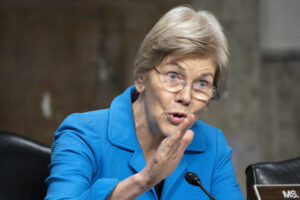

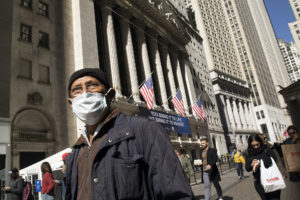

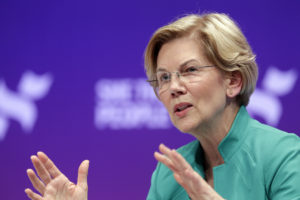
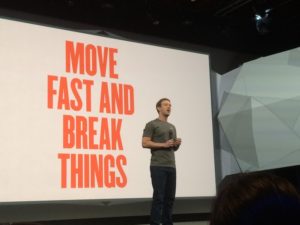
You need to be a supporter to comment.
There are currently no responses to this article.
Be the first to respond.